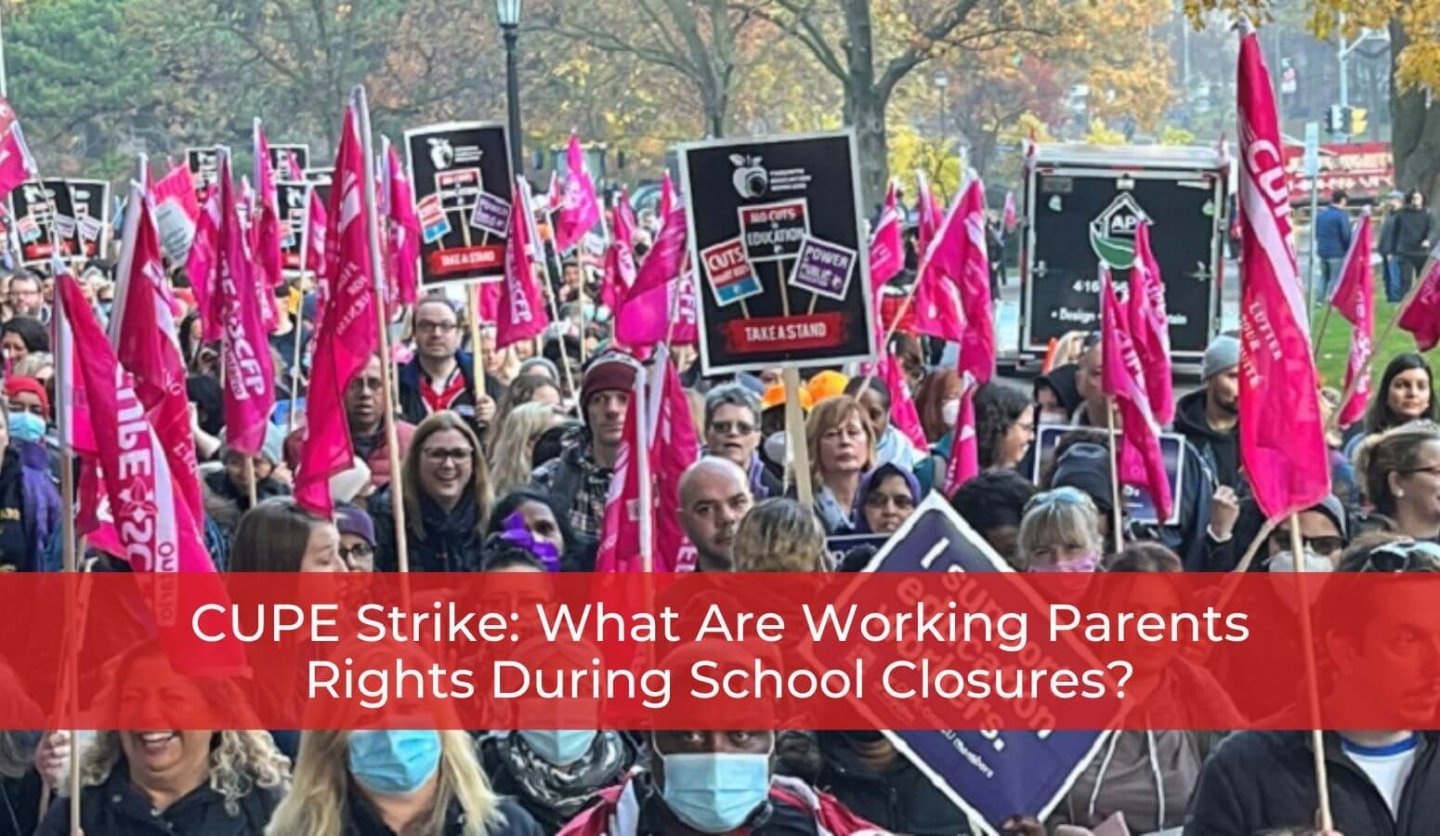
CUPE Strike: What Are Working Parents Rights If They Have to Stay at Home Due to School Closures?
Many people are probably confused about the recent twist during the recent CUPE strike – the Ontario government just announced that it would revoke the controversial back-to-work legislation, Bill 28. Shortly after, the Canadian Union of Public Employees (CUPE) claimed their members would end the strike and return to work the next day.
Working parents’ right to work may be affected if schools close again
One major group that cannot be ignored in this incident is the parents whose kids are affected by repetitive school closures with short notice. Even if CUPE and the government temporarily reach an agreement, union members may strike again if the subsequent negotiations fall apart. After all, the Ontario legislature must vote to revoke Bill 28, which could be time-consuming.
However, working parents may have to bear extra child-care responsibilities during potential repetitive school closures. This may affect the parents’ right to work as the strikes are temporary without a predetermined timeline regarding when to end, and parents would encounter difficulties in randomly registering alternative child-care programs.
Employers’ duty to accommodate working parents based on family status
The Ontario Human Rights Code demands employers accommodate employees whose work conflicts with their caregiving obligations to family members. Termination due to your child-care obligations during the strike and school closure is discriminatory on the ground of family status.
You could request your employer for accommodation, such as working remotely. However, the Human Rights Code also sets a limit on an employer’s duty to accommodate – the undue hardship on the employer’s business. Note that accommodation is a two-way communication process. It is better to bring up an explicit request, provide alternative solutions and cooperate with the employer to solve the issue. Though it is rarely the case, when it comes to undue hardship, the employer will not have to accommodate you – nevertheless, the onus is on the employer to prove it.
Potential constructive dismissal claim
Accommodation does not mean that your employer can unilaterally make significant changes to your employment. For instance, your employer may temporarily adjust your work schedule to make it more flexible for you to take care of your kids. However, the employer cannot simply reduce your working hours and pay without your consent. When your employer significantly alters your employment terms, you may have a claim for constructive dismissal and severance pay.
If you are an employee whose employment has been affected by the school closures, we recommend that you seek legal counsel to better understand your rights. We at Whitten & Lublin are happy to provide insight and advice into your specific circumstances. If you are looking for employment lawyers and would like more information about what Whitten & Lublin can do for you, please contact us online or by phone at (416) 640-2667 today.
Author: Luna Li



